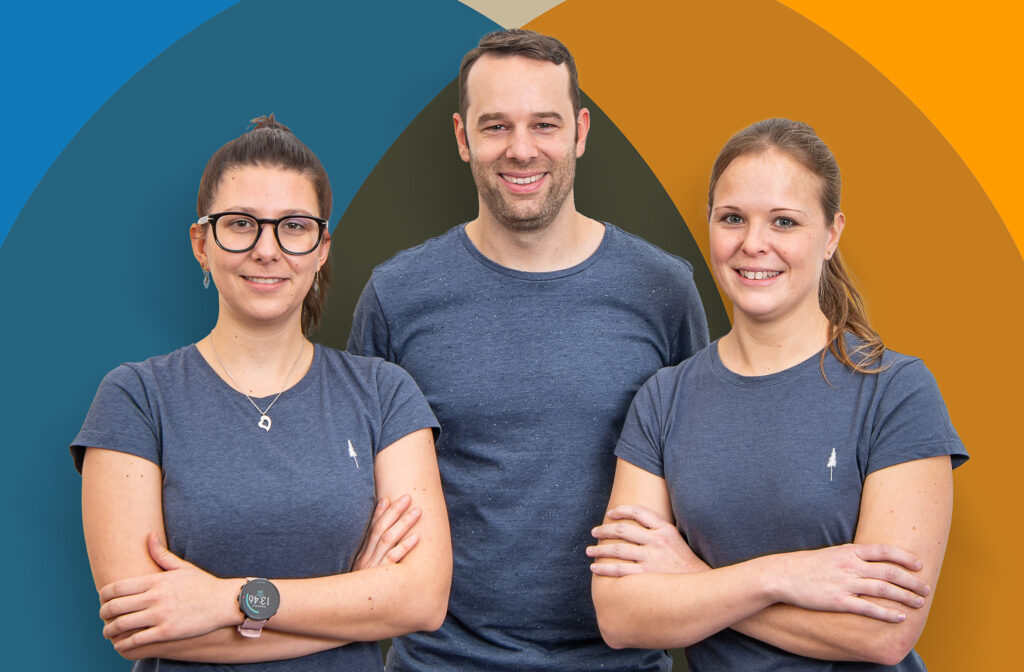Herzlich Willkommen!

ostejo ist eine Praxis für aktive und manuelle Therapie. Sowohl unsere Physiotherapie als auch die osteopathischen Therapien sind genauso individuell wie Ihre Ziele, die damit erreicht werden sollen.
Auf unserer Website informieren wir Sie über Möglichkeiten und Hintergründe unserer Therapieformen und geben Ihnen Einblicke in aktuelles Wissen rund um einen gesunden und aktiven Körper. Natürlich verraten wir Ihnen auch mehr über unsere Praxis und die Menschen dahinter.
Möchten Sie uns gerne persönlich kennen lernen? Dann vereinbaren Sie jetzt einen Termin bei ostejo! Alle Kontaktdaten finden Sie hier: Kontakt & Anfahrt.
Gemeinsam mit Ihnen erstellen wir einen Plan, wie Ihre gewohnte körperliche Funktion und Robustheit wiedererlangt, gehalten oder verbessert werden soll, stets mit dem Ziel, Ihre Lebensqualität zu steigern!
ostejo bieteT ihnen …
- Manuell-osteopathische Therapie
- Physiotherapie & Sportphysiotherapie
- FOI (Funktionelle Orthonomie und Integration)
- Dry Needling
Mehr zu unserem Behandlungskonzept können Sie im Artikel Unsere Philosophie lesen.

Wer ist ostejo?
Erfahren Sie mehr über die Praxis und das Team.

Der Ablauf einer Behandlung
Was Sie alles wissen müssen kurz zusammengefasst.

ostejo Behandlungsraum
TERMIN vereinbaren
Wenn Sie gerne einen Termin bei ostejo vereinbaren möchten, rufen Sie uns an oder schreiben Sie uns eine Nachricht. Alle Kontaktangaben finden Sie hier:
